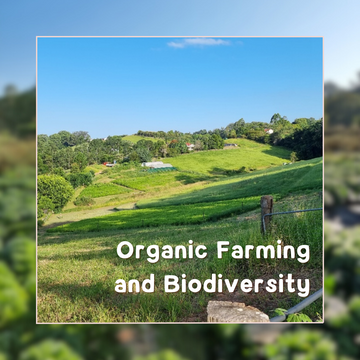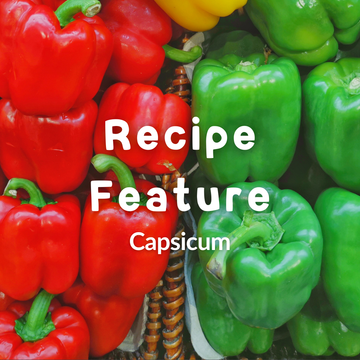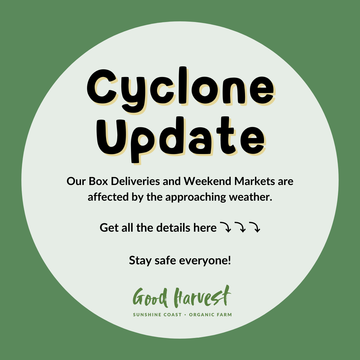Many people don't know this, but for a farm to be certified as organic within Australia, a minimum of 5% of the land needs to be dedicated to biodiversity.
The United Nations defines biological diversity as the variety of life on Earth and the natural patterns it forms. It is vital to protect the vast array of species which our planet has, but in striving for human development, this often is put at risk.
Therefore it is something that, as organic farmers and stewards of the land, we are in tune with. Keeping the land and the wide array of flora and fauna that live there healthy is part of every decision we make on what to grow, how to grow it, when and how to harvest, and how to develop our farms for the present and into the future.
By observing the natural world we find that there is a sacred balance. For every low pressure storm, there is a bright shiny day. When a tree falls in a forest, another grows to fill the space. Predators keep the population of pests under control, insects pollinate flowers, and worms decompose leaf litter. Every being on earth has a role to play in the web of life. This is also known as biodiversity.
Biodiversity can be measured from microscopic genetic diversity to the ecosystem as a whole. It is a great measure of environmental health, security, resilience and ultimately balance.
At Good Harvest, we aim to sustainably feed our community and biodiversity is at the heart of this.
Looking closely at our soil, we incorporate a vast array of micro-organisms including microbes and bacteria to help break down and move nutrients within our soil. The clew of earthworms that live beneath the surface do all the heavy lifting, and in exchange we give them food and a happy home without chemicals.
We nourish and attract a wide variety of insects and invertebrates to our garden beds by planting flowering plants and trees. Even lovely ladybirds help keep away other unwanted bugs, and the kaleidoscope of butterflies and bees join in to help pollinate our crops.
Birds and smaller mammals, such as a friendly charm of finches, are made welcome by planting habitat close to our cultivations. In return they help to keep the insects on our farm in check to promote balanced and healthy plants and soil.
We plant a variety of different crops in our crop rotation to promote diverse root architecture which helps to retain moisture in the soil, prevent erosion and to transport different nutrients back into the soil.
It is absolutely evident here at Good Harvest that biodiversity plays an important role in maintaining both soil health and plant health. This knowledge helps us to care for the land all while producing the most nutritious, sustainable and delicious produce for you and your loved ones to enjoy now and for years to come!




